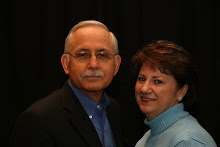“Bet you can’t eat just one” (as the old potato-chip commercials had it) is, of course, a bet most of us end up losing. But why? Is it simple lack of willpower that makes fatty snacks irresistible, or are deeper biological forces at work?
Some intriguing new research suggests the latter. Scientists in California and Italy reported last week that in rats given fatty foods, the body immediately began to release natural marijuanalike chemicals in the gut that kept them craving more.
The findings are among several recent studies that add new complexity to the obesity debate, suggesting that certain foods set off powerful chemical reactions in the body and the brain. Yes, it’s still true that people gain weight because they eat more calories than they burn. But those compulsions may stem from biological systems over which the individual has no control.
“I do think some people come into the world, and they are more responsive to food,” said Susan Carnell, a research associate at the Columbia University Institute of Human Nutrition. “I think there are many different routes to obesity.”
In the recent rat studies, by a team from the University of California, Irvine, and the Italian Institute of Technology in Genoa, the goal was to measure how taste alone affects the body’s response to food. Among rats given liquid diets high in fat, sugar or protein, the ones who got the fatty liquid had a striking reaction: As soon as it hit their taste buds, their digestive systems began producing endocannabinoids, chemicals similar to those produced by marijuana use.
The compounds serve a variety of functions, including regulation of mood and stress response, appetite, and movement of food through the intestines. Notably, they were released only when the rats tasted fat, not the sugar or protein. The findings were published online last week in The Proceedings of the National Academy of Sciences.
“The most surprising thing to most people, including me,” said an author of the study, Daniele Piomelli, director of drug discovery and development at U.C. Irvine, “is the findings provide a window on how we relate to fatty foods.”
Since fats are essential for cell functioning, Dr. Piomelli continued, “we have this evolutionary drive to recognize fat, and when we have access to it, to consume as much as we possibly can.”
The finding that the signal to eat more fat is released from the gut offers hope for potential new diet drugs. A Food and Drug Administration committee already has rejected one diet drug that blocks endocannabinoids, called Acomplia in Europe, where it was later withdrawn because it had severe psychological side effects, including suicidal thoughts. The new research suggests that the focus might be shifted to endocannabinoids in the gut, which could alleviate side effects in the brain.
In the rat studies, the researchers injected a cannabinoid-blocking drug into the intestines of the rats and found that they lost interest in the fatty food. “The effect is remarkable,” Dr. Piomelli said. “They are no longer interested in feeding. They stop completely. We were amazed.”
A drug based on the research is still years away, but the findings offer practical advice to consumers about the powerful biological forces at play when they snack on fatty junk foods.
“We think we eat it because we like it, but it’s not just because we like, but because we want it,” said Dr. David Kessler, former head of the F.D.A. and author of the book “The End of Overeating” (Rodale, 2009). “It has a lot more to do with our brains and the feedback mechanism to our brains than we realize.”
Other studies have shown that the body’s brain reward centers are strongly affected by the foods we eat.
For example, when obese women were shown pictures of high-calorie foods, their brains showed greater activity in regions associated with anticipating reward than did the brains of normal-weight women. “Reward centers were activated just by saying the words ‘chocolate brownie,’” said Dr. Carnell of Columbia.
The question is whether some people are born more responsive to certain foods, or whether a lifetime of overeating leads to brain and body changes that promote a stronger food response. To shed light on that issue, Dr. Carnell is conducting studies looking at normal-weight teenagers who have obese parents, and as a result are at risk for becoming obese themselves. “I’m interested in whether the brain is responding differently even before they become obese,” she said.
Dr. Kessler notes that consumers need to be aware that the body’s natural signals are often overwhelmed by the abundance of choices and messages about food, so they must be extra vigilant about healthful eating.
“The pull is very strong, and there is a biological reason why food has such power over us,” he said. “It’s a real struggle, and it’s not just a question of being lazy or lack of willpower.
“But just because your brain is being hijacked, that doesn’t mean you don’t have a responsibility to protect yourself.”
